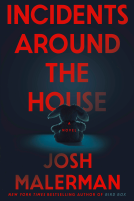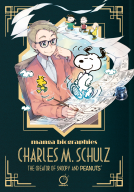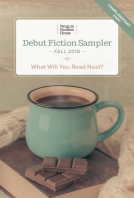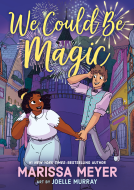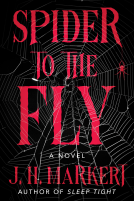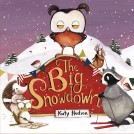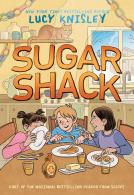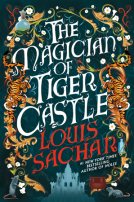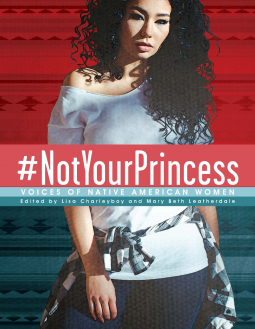
#NotYourPrincess
Voices of Native American Women
by
This title was previously available on NetGalley and is now archived.
Send NetGalley books directly to your Kindle or Kindle app
1
To read on a Kindle or Kindle app, please add kindle@netgalley.com as an approved email address to receive files in your Amazon account. Click here for step-by-step instructions.
2
Also find your Kindle email address within your Amazon account, and enter it here.
Pub Date Sep 12 2017 | Archive Date Mar 20 2018
Annick Press Ltd. | Annick Press
Description
Native Women demand to be heard in this stunning anthology.
Whether looking back to a troubled past or welcoming a hopeful future, the powerful voices of Indigenous women across North America resound in this book. In the same style as the best-selling Dreaming in Indian, #Not Your Princess presents an eclectic collection of poems, essays, interviews, and art that combine to express the experience of being a Native woman. Stories of abuse, humiliation, and stereotyping are countered by the voices of passionate women making themselves heard and demanding change. Sometimes angry, often reflective, but always strong, the women in this book will give teen readers insight into the lives of women who, for so long, have been virtually invisible.
Marketing Plan
Praise for Dreaming In Indian:
Recipient of 15+ awards and nominations, including a Kirkus Prize nomination and a Youth Literature Award, American Indian Library Association
“[H]onest portrayals of strong, hopeful, and courageous indigenous youth living non-stereotypical lives. Not to be missed.” —School Library Journal, *starred review
“Original and accessible, both an exuberant work of art and a uniquely valuable resource.” —Kirkus Reviews, *starred review
Available Editions
| EDITION | Other Format |
| ISBN | 9781554519576 |
| PRICE | CA$14.95 (CAD) |
| PAGES | 112 |
Links
Featured Reviews
I saw #NotYourPrincess on NetGalley and knew I had to read it.
Whether looking back to a troubled past or welcoming a hopeful future, the powerful voices of Indigenous women across North America resound in this book. In the same style as the best-selling Dreaming in Indian, #NotYourPrincess presents an eclectic collection of poems, essays, interviews, and art that combine to express the experience of being a Native woman. Stories of abuse, humiliation, and stereotyping are countered by the voices of passionate women making themselves heard and demanding change. Sometimes angry, often reflective, but always strong, the women in this book will give teen readers insight into the lives of women who, for so long, have been virtually invisible.
I don’t know where to begin with this review. It’s a short book but it’s a powerful read for those of us who have been overlooked in society and even in marginalized movements. #NOTYOURPRINCESS explores what it means to be a Native woman and looks at the experiences of several woman through poetry, art, comics, and stories.
There were 2 stories and 1 comic that really stuck with me with I was reading this. The first was BLANKETS OF SHAME by Maria Campbell which talks about how we all wear blankets of shame. The story starts with Maria talking about how her Cheechum told her that the government stripped Natives of everything that made them living souls and then gave them blankets to hide their shame and we still carry those blankets of shame through intergenerational trauma.
INVISIBLE INDIANS by Shelby Lisk explores what it’s like when Native people don’t meet the expectations of how white people view us and how they try to strip away our identities in order to make themselves feel superior.
THE TALE OF TWO WINONAS by Winona Linn is a comic that deals with tragedy porn, the weight of names, and heroes.
I loved every piece of this book and I cannot wait to have a finished copy in my hands. You can preorder here.
#NotYourPrincess is another fabulous collection brought to us by Lisa Charleyboy and Mary Beth Leatherdale. The magic of the book is that the many voices are seen and heard through a wide variety of formats with the design of the book framing the pieces beautifully. In most cases artwork compliments the texts and the words provide context for the artwork. There are images on nearly every spread and it’s a magnificent visual experience.
The stories shared both visually and in text reveal what it means to these women to be Native. They share challenges, triumphs, losses, hopes, family ties and so much more. These are stories that acknowledge the pain of the past, but also point to strength, resilience, and hope for the future. In the essay “Reclaiming Indigenous Women’s Rights,” Nahanni Fontaine (Anishinaabe) explains it this way, “When we begin to understand the colonial legacy and its collateral damage to the minds and bodies of Indigenous women, we can begin to forgive, accept, and heal ourselves from the countless hurtful, damaging ways in which this trauma manifests itself.”
These stories do not ignore the past, but they are very much stories of the present and the future. The many voices sound out against the stereotypes that often prevent people from seeing and recognizing Native women. The women ask to be seen as they are – not as they are expected to be. This is especially obvious in “A Conversation with a Massage Thereapist” by Francine Cunningham (Cree/Métis). The questions the massage therapist asks reveal much about biases people can have. The therapist asks, “What are you?” Indigenous and Cree are answers, but they are pretty much discounted as the therapist responds with, “You don’t really look it.” After learning that the person was raised in the city, “Oh, well, I guess you’re not a real one then?” It doesn’t take long to realize this person has completely succumbed to stereotypes. In “The Invisible Indians,” white-faced, red-haired Shelby LIsk (Mohawk) writes about a similar point of view. “They want fantastical stories of the Indians that used to roam this land. They want my culture behind glass in a museum. But they don’t want me. I’m not Indian enough.”
There are also many examples of confident young women who are using their strengths. We see young women like AnnaLee Rain Yellowhammer (Hunkapapa, Standing Rock Sioux) who are demanding to be heard. She’s an activist fighting the Dakota Access Pipeline and has been raising her voice loud and clear in defense of the land, water, and her tribe.
Lisa Charleyboy describes this as a “love letter to all young Indigenous women trying to find their way.” This is an excellent description. Readers will find love and encouragement here on every page.
Recomendation: #NotYourPrincess should be available in all young adult collections. Get it as soon as it’s available.
This is a beautifully written book of poetry, essays and interviews contributed by Indigenous women and girls.
Akin to #BlackGirlMagic, the women and girls in #Notyourprincess have decided that they no longer want to be portrayed as the stereotypical women. These women and girls are doctors, lawyers, inventor and protesters. They are strong, resilient and beautiful. But mostly they are survivors of genocide and abuse. The stories in this book give you a look into their world. The artwork added to assist in the telling of their stories was a wonderful bonus.
Although I'm not a Indigenous woman, I felt a strong connection to every woman in the book. The author and the women in #Notyourprincess want to you know that they will no longer be silent (that they never really were), that they are not your Tiger Lily, that they will not deal with discrimination...they just won't deal with nonsense and I'm excited for them.
Highly recommended.
thank you to the author/publisher for the opportunity to review.
